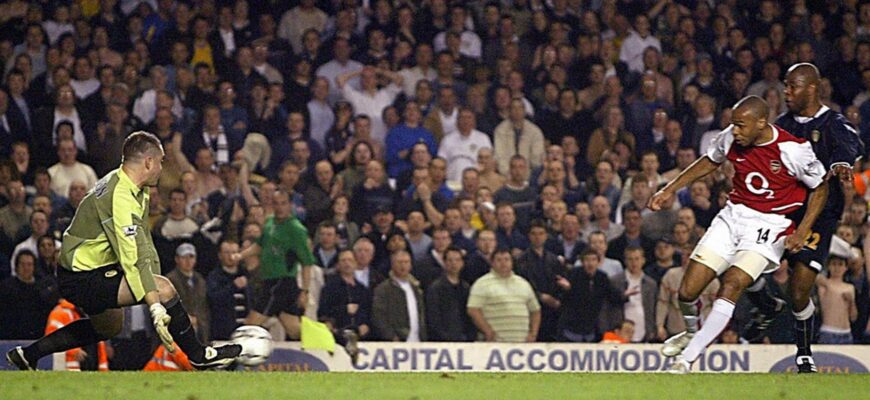Football, often hailed as “the beautiful game,” faces an existential dilemma. Beneath the dazzling skills and roar of the crowds, a growing concern simmers: are we pushing our elite athletes to their breaking point? A recent powerful intervention from a legendary voice suggests we are, and that the time for mere observation is over.
A Legend`s Perspective: The Weariness of a Champion
Thierry Henry, a World Cup winner and one of football`s most eloquent analysts, has stepped forward with a blunt assessment of the modern game`s relentless schedule. Drawing on his own decorated career, Henry revealed the profound toll that an increasingly demanding calendar took even on him. He recalled arriving at major tournaments in 2002, 2004, and 2008 “dead — mentally, physically,” unable to prepare properly, just there “to play.” This personal anecdote serves as a stark reminder that even peak athletes of a previous era felt the strain.
Yet, Henry argues, today`s players face an even more brutal reality, with some navigating 60 to 70 games in a single season. The implication is clear: the cumulative fatigue not only degrades performance over a club season but also directly impacts the spectacle of international competitions, where the world`s best should theoretically be at their peak. It`s a sobering thought: are we unwittingly engineering a decline in the very quality of football we claim to cherish?
The Demand for Dialogue: A Call to the Current Generation
Crucially, Henry`s plea is not merely a nostalgic lament from an ex-player. He explicitly states that governing bodies like FIFA and UEFA should not consult him or his peers. “Do not call me, UEFA. Do not call me, FIFA. I`m not playing anymore,” he asserted. His logic is piercingly simple: the conversation must involve those currently living the grind. “Speak to [Virgil] van Dijk, speak to Mo Salah. … Sit with them. Have a discussion with them. They are the actors right now.”
This insistence on direct engagement highlights a significant perceived disconnect. It suggests that while decision-makers craft schedules and introduce new competitions, the primary stakeholders – the players themselves – are often left out of the “educational discussion” that could truly inform sustainable changes.
The Expanding Calendar: More Football, Less Value?
Henry`s sentiments are echoed by fellow analyst Jamie Carragher, who points fingers directly at the proliferation of new tournaments. Competitions like the UEFA Nations League and the expanded FIFA Club World Cup are cited as prime examples of additions that primarily serve commercial interests rather than genuine sporting demand or player welfare. “Nobody is out there asking for those competitions,” Carragher stated, underscoring the perceived artificiality of their inclusion.
The numbers speak for themselves. Proposals for a 64-team World Cup and biennial major tournaments float in the ether, each promising more revenue, but at what ultimate cost? If the “product” – the players – is pushed beyond its limits, what becomes of its long-term appeal? Henry’s candid admission that he, as a fan, found the Club World Cup unwatchable and “too much” is perhaps the most damning indictment of all. When even a legend of the game is fatigued by the sheer volume, it signals a deeper problem than just player burnout.
The Fan`s Burden: Financial and Emotional Saturation
Beyond the physical and mental strain on players, Henry also raised a critical point about the fans. “How deep is your pocket now as a fan?” he questioned, highlighting the escalating financial demands placed on supporters expected to follow multiple club and international competitions, purchase merchandise, and subscribe to countless broadcasting services. The beautiful game risks becoming a prohibitively expensive one, alienating the very fanbase it depends upon.
This “too much” sentiment isn`t just about money; it`s about emotional saturation. When every match feels critical, and tournaments bleed into one another, the unique magic and anticipation that define football can be diluted. The occasional, truly momentous event can lose its lustre amidst a sea of high-stakes encounters.
A Call to Action: The Players` Power
Ultimately, Henry’s message is an empowering one for the current generation of players. He believes that change won`t come from retired legends or well-meaning pundits, but from the collective strength and vocal unity of those on the pitch. “The only people that can change their destiny is the players themselves,” he declared, challenging athletes to be “strong and to be vocal about it.”
This perspective, buttressed by Carragher`s suggestion that players might need to “refuse to play” as a last resort, indicates a growing belief that the power balance needs to shift. For too long, the commercial juggernaut of global football has rolled on, seemingly oblivious to the cries from its core. The question now is whether the players, who bring the magic to the game, will seize their moment to redefine its future.
The conversation initiated by Thierry Henry is not just about scheduling; it’s about the soul of football. It’s a call for sustainability, for player welfare, and for genuine respect for the fans. As the sport continues its relentless expansion, the echoes of Henry’s words serve as a stark warning: ignore the welfare of the game`s true stars at your peril. The beautiful game deserves better than to be simply a relentless pursuit of profit.









